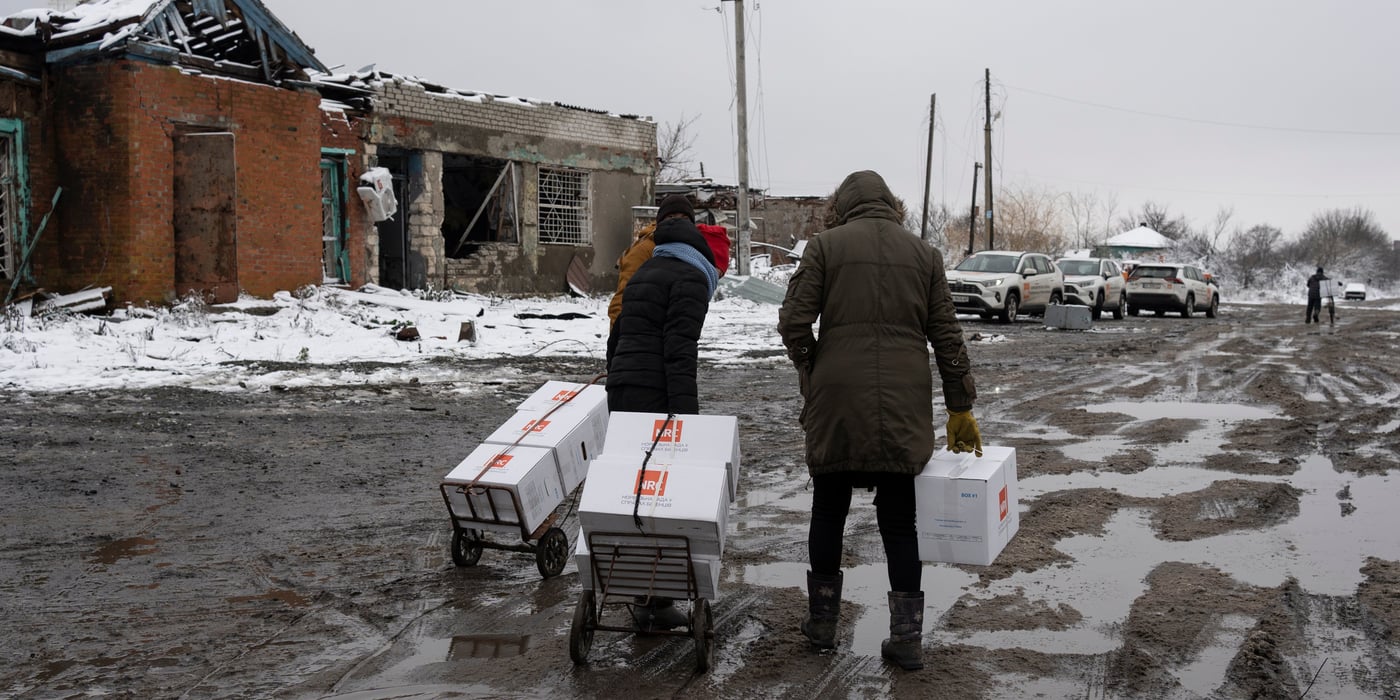“There is a general lack of proper policy framework and a multiplicity of overlapping laws and regulations including formal law, customary law and Sharia Law”, says Jama Yassin, NRC’s Shelter Manager in South Central, Somalia.
The HLP round-table event was held in December at the African Development Bank through a partnership between NRC and Legal Action Worldwide (LAW), an independent, non-profit organisation comprised of a network and think-tank of prominent human rights lawyers and advisors.
The discussions were aimed to contribute to the attainment of durable solutions for IDPs, returnees and other vulnerable groups in Somalia, and more specifically, the aim to increase capacity and contribute to building a common ground on how to deal with HLP issues among the members of the Somalia Shelter and Protection Clusters.
Most people in Somalia buy and sell land without going through the formal system. These systemic weaknesses have both added to and exacerbated the large number of land disputes in Somalia.
“Land disputes at household level commonly involve evictions by a head of household, and in Somalia context, male-headed families where first wives are evicted following marriage of a new wife. At settlement level, disputes arise due to land grabbing, insecurity of tenure and abuses caused by IDP camp gatekeepers, and conflicts between international NGOs and private land owners”, said Jama Yassin during the round-table.
Discussions revealed that in some instances, gate keepers impose rent payments and often evict beneficiaries who fail to meet such demands. Landlords often breach land tenure agreements in the absence of titles and evict beneficiaries from the settlements. This is mainly motivated by private investors who offer better packages to occupy the settlement.
The UNHCR estimates that there are more than one million IDPs in Somalia and 2,300 refugees. In its report titled ‘Housing, Land and Property in Somalia: Persons of Concern in Somaliland and South-Central Somalia‘ the Legal Action Worldwide (LAW) notes that there has been a tendency by governments in all areas to treat this section of the population as a ‘problem’ that must be addressed, and if possible, removed.
“Forced evictions remain a critical protection concern primarily in the capital Mogadishu and other urban areas. According to UNHCR, from January to November 2014, more than 32,000 people have been forcibly evicted from public and private land, with over 90% of these being IDPs seeking alternative shelter, tells Evelyn Aero, NRC’s Information, Counselling and Legal Assistance Manager in Somalia.
Evelyn adds: “The dilemma is compounded by the realities of weak and piecemeal laws that do not provide a comprehensive legal framework”.
Very little new legislation has been passed since 1991, and lawyers and judges are often unsure of how to practically apply existing law due to overlap and divergence between civil, customary and Sharia laws.
Fortunately, the recent appointment of a new federal government in Somalia means that it is more feasible and necessary to begin addressing the issues.
The main recommendations proposed during the round-table were as follows:
1. Establish a working group/ HLP Taskforce (under the Protection Cluster) at the Somalia (all three regions) and Nairobi level. This group will prepare an action plan for addressing HLP issues in Somalia and will provide a medium through which civil society is able to contribute to the relevant Somali Compact PSGs.
2. Strengthen and support government institutions to address HLP issues, including through the establishment of a Land Commission in Mogadishu and by supporting the Land Dispute Tribunals in Somaliland.
3. Identify a lead on reviewing and drafting legal frameworks.
4. Advocacy around HLP issues must be strengthened. The newly established working group and taskforce o take the lead.
5. A best practices document should be compiled from the experience of UN agencies and NGOs. It should include key recommendations on ways forward and should focus on practical, pragmatic and localised solutions.
6. Support Somali lawyers in drafting policies and legislation addressing HLP issues and challenging existing policies, legislation and practice through strategic litigation.
7. Funding for HLP projects needs to be long-term and flexible.
NRC promotes and protects the rights of refugees and people who have been displaced within their own country. NRC takes action during situations of armed conflict, and engages in other contexts where main competences will add value.



